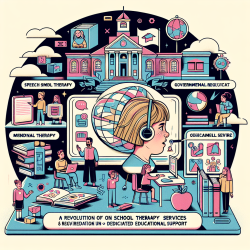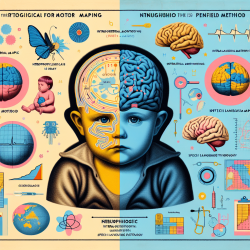Introduction
In the realm of education, fostering holistic development in children has become a priority. The research study titled Promoting 21st Century Health and Wellness Skills in Elementary School Children: a Group Randomized Trial provides compelling evidence on the effectiveness of integrating social and emotional learning (SEL) with mindfulness and compassion in elementary schools. This blog post aims to translate these research findings into actionable insights for practitioners, emphasizing the importance of data-driven decisions in creating positive outcomes for children.
The Power of SEL and Mindfulness in Schools
The study conducted a group randomized trial across 45 elementary schools, introducing a comprehensive health and wellness curriculum that integrated multiple SEL skills such as mindfulness, compassion, and physical awareness. The results were promising, particularly in schools serving high-poverty communities, where the need for such interventions is greater. These findings highlight the potential of SEL programs to foster academic engagement, personal well-being, and positive student behavior.
Key Findings and Implications for Practitioners
- Enhanced SEL Skills: The curriculum demonstrated significant improvements in SEL skills, particularly in high-poverty schools. Practitioners should consider tailoring SEL programs to meet the specific needs of their student populations.
- Mindfulness and Compassion: Integrating mindfulness and compassion into the curriculum proved beneficial. Practitioners are encouraged to incorporate these elements into their teaching strategies to promote a supportive and empathetic classroom environment.
- Long-term Sustainability: The study emphasized the importance of designing interventions with long-term sustainability in mind. Practitioners should focus on aligning programs with school priorities and resources to ensure lasting impact.
Encouraging Further Research and Implementation
The research underscores the need for continued exploration and refinement of SEL programs. Practitioners are encouraged to engage in further research to adapt and optimize these interventions for diverse educational settings. By collaborating with researchers and leveraging data-driven insights, educators can contribute to the ongoing development of effective SEL strategies.
Conclusion
The integration of SEL, mindfulness, and compassion in elementary education holds great promise for nurturing well-rounded, resilient children. By adopting data-driven approaches and focusing on sustainable implementation, practitioners can play a pivotal role in shaping the future of education. To read the original research paper, please follow this link: Promoting 21st Century Health and Wellness Skills in Elementary School Children: a Group Randomized Trial.










